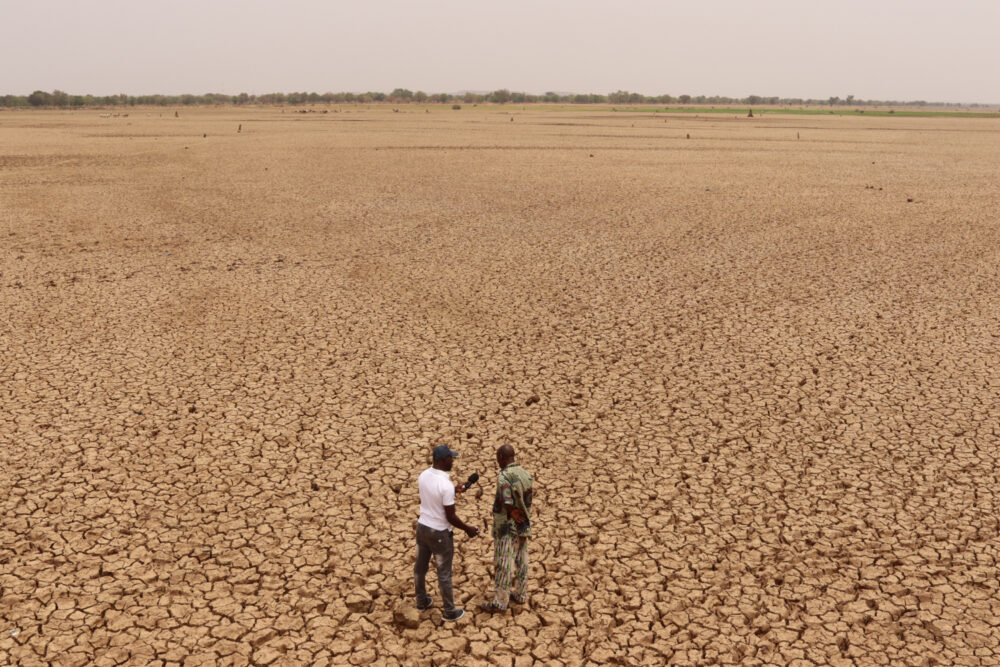Climate change and the collapse of biodiversity, caused by human activity, are already resulting in a major ecosystem crisis. Accused of immobilism, catastrophism, or of having played into the hands of lobbies for too long, the media have a crucial role to play in bearing witness to this crisis and in highlighting mitigation and adaptation solutions. This article is taken from our 10th publication “Mediation”, available at this link.
From year to year, from COP to COP, from IPCC report to IPCC report, the alarming data are piling up: average global warming tending at best towards a 2.6°C trajectory, at least 100,000 additional deaths each year due to rising temperatures, 30 million displaced every year due to extreme weather events, 69% loss of numbers in wild vertebrate animals over the last fifty years… Nothing seems to stop humanity’s march towards a major ecosystemic catastrophe, induced since the industrial era by the way it produces and consumes. Following a trend that appeared in the United States in 2019, the past year has seen several European media of reference declare the global ecological crisis as one of their priorities. Faced with the global emergency, journalists are getting involved and intend to mobilize citizens directly.
This effort of media action against climate change is based on the belief that journalism can raise awareness as fast as the climate is going crazy. However, nothing is less certain at a time when more than half of Americans, Australians and even Germans, three of the best informed peoples on the planet, remain to be convinced of the human origin of climate change.
The landscape gardener Gilles Clément, author in 1999 of a groundbreaking text on the inextricable link between all living species on a finite planet*, used to say that “we must do as much as possible with, as little as possible against”. Given the current data – the average global temperature has already risen by 1.1°C compared to pre-industrial times – and the inertia of the greenhouse effect, climate change is already here for decades. Perhaps it is time for the media to deal with it as well, and to teach their audiences to live with it: to understand it, to adapt to it as it manifests itself more or less dramatically, to understand it not only in terms of resistance but also of opportunities. Faced with the seriousness of the geophysical upheavals underway, this issue of Mediation identifies and salutes media initiatives that alert, inform and turn towards solutions: together, with their audience, they contribute to inventing the world of tomorrow.
Our responsibility in face of the environment crisis
The ecological emergency, a global phenomenon with local consequences, has become a major media issue in the countries where Fondation Hirondelle works: floods in the Central African Republic and in the Sahel this autumn, drought in the Sahelian region, pollution of urban centres full of outdated thermal vehicles, scarcity of natural resources including water, and migration of populations in danger. How should we cover this ecological issue that involves so many angles?
As is often the case, it is by listening to the populations concerned that we can cover the ecological emergency -allowing testimony on the difficulties created because of climate change but also on concrete, human-friendly solutions being developed. There is also the training of journalists so that they master the issues, can explain the data and what is at stake in a transparent way without being taken in by false studies or manipulated by certain interests. Improving relations between the scientific and journalistic worlds is an editorial objective of Fondation Hirondelle. The social responsibility of our media in the face of the ecological crisis is thus immense: to inform, to explain, and make the voices of the most vulnerable heard, so that decisions can be taken to promote a sustainable world.
Read our full Mediation No.10 here.
* Gilles Clément, Le Jardin planétaire – Réconcilier l’homme et la nature (Albin Michel, Paris 1999).

